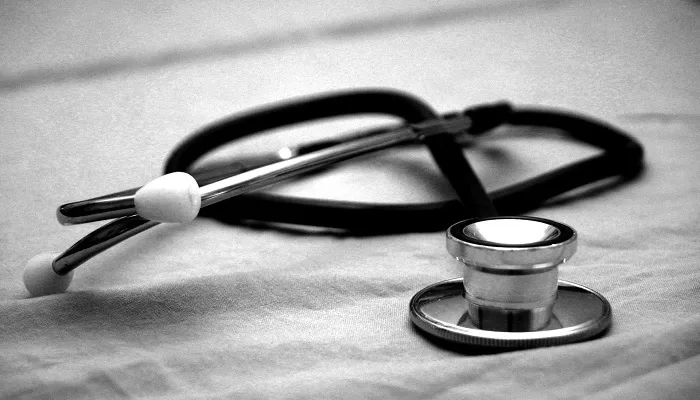Health
The Consequences of The Increasing Cases of Medical Negligence Litigation for Health Care

The issue of medical negligence is gaining momentum across the globe, and the British health care industry hasn’t been spared. Claims against physicians used to be a rare event prior to the 20th century. Now, it’s a completely different story. In 2020/2021, there were approximately 12.6 thousand clinical negligence claims reported to NHS England, the highest amount ever.
Medical negligence represents the failure of a medical practitioner to act in accordance with the standards of the profession, causing injury to the patient. A claim for compensation is based on the principle that if a person has committed civil wrongdoing, they must pay compensation in the form of damages to the injured person. In medicine, system errors can occur, but individuals also make mistakes. The U.K. has witnessed a number of considerable, somewhat shocking, medical negligence cases over the past couple of years.
The NHS isn’t immune to claims filed by patients forced to endure suffering. As a matter of fact, an ever-increasing number of people are filing lawsuits against the NHS with the help of a solicitor, many cases resulting in settlements or pay-outs. The civil rights movement is partly responsible for the rise in the number of medical negligence litigation. British citizens are becoming more aware of their legal rights.
What’s The Purpose of Medical Negligence Litigation?
The purpose of medical negligence litigation is to stop unsafe practices, compensate the injured person for their pain and suffering, and facilitate corrective justice. After experiencing an injury due to the reckless behaviour of others, you may feel hesitant to initiate a lawsuit. Keep in mind that the damage done to your body is just the beginning. There can be further consequences, particularly financial ones, so you won’t be able to support yourself or enjoy the same quality of life.
The patient-doctor relationship takes the form of a contract. More exactly, the medical practitioner owes certain duties to their patient, and a breach of any of these duties gives way to negligence. Some of the most common medical negligence cases in the U.K. are misdiagnosis/delayed diagnosis, failure to treat, prescription drug errors, childbirth injuries, and surgical/procedural errors. According to the experts at MedicalNegligenceLaw.co.uk, a claimant has 3 years to start a civil claim for compensation resulting from negligent medical treatment.
Contrary to popular opinion, lawsuits don’t exist to make some people rich. Claims are brought to ensure patient safety. In other words, the aim is to punish the defendant, whose behaviour is found to be especially harmful, and make an example. It can be, therefore, argued that medical negligence lawsuits are about improving medical care.
Medical Negligence and Its Effects on The Health Care Industry
Medical Negligence Affects the Cost of Health Care
Most of the health care providers in the U.K. are under the NHS. The NHS continues to remain free for any resident in the U.K. It’s mainly funded from general taxation supplemented by National Insurance contributions. When the compensation and legal costs are payable as a result of a medical negligence lawsuit against the NHS, the money ultimately comes from taxpayers. Compensation awarded is paid via the budget of the Department of Health. As medical negligence suits are becoming more prevalent, the NHS will have no choice but to increase the costs to the public, so they’ll pay higher insurance premiums and doctor’s fees.
Doctor Insurance Premiums Have Gone Up
A medical practitioner needs adequate and appropriate insurance to practice medicine in the U.K. in case of clinical negligence claims. At the end of the day, it’s better to be safe than sorry. The occurrence of medical negligence cases leads to rising insurance premiums. For some doctors, it has become impossible to survive because of the soaring medical insurance costs. Some choose to move to states with manageable costs, which greatly reduces access to health care. Rising liability costs either drive medical practitioners out of work or determine them to cease to offer high-risk services.
Defensive Medicine Is Slowly but Surely Becoming the Norm
These days, doctors practise what is called defensive medicine, which can be positive or negative, depending on the situation. Medical practitioners deviate from their usual behaviour or what is considered good practice. They order additional tests and perform additional supplementary procedures, which aren’t always necessary, but provide protection against claims of medical negligence. As mentioned earlier, some physicians avoid high-risk patients or procedures. Defensive medicine can increase the cost of health care and expose patients to genuine risks.
The Hospital Administrator’s Role in Dealing with Medical Negligence
Medical negligence affects both patients and doctors. Legal action can result in costs, not to mention mental distress and damaged reputation. Leaders in the medical services industry should do everything within their power to avoid medical negligence. The health care organisation should fulfil its original purpose of making sure that the safety and interests of patients take precedence over all other concerns. To prevent medico-legal issues, it’s necessary to identify less-than-ideal patterns of practice.
The medical profession is one of the noblest professions in the world, yet the patient-doctor relationship has become more formal and structured. Under corporatisation, organisations are guided more by the profit motive. Following a well-mediatised lawsuit, a hospital can lose more than money. The judgement can impact their reputation. Several measures can be taken to avoid litigation, such as:
- Ensuring the accuracy of case files and databases. The slightest mistake can lead to a costly mishap, which can result in a lawsuit. Data in computer-based patient records have many uses in patient care, so attention needs to be paid to file maintenance procedures.
- Encouraging and practising clear communication. Communicating clearly and effectively is of the essence. Physicians should take the time to make sure that patients understand the diagnosis, treatment, and medication plans.
- Reminding staff to take patient concerns seriously. Many patients feel ignored or dismissed by their doctors. Medical practitioners shouldn’t disregard what they’re told. Compassion makes all the difference. Physicians, as well as nurses, should give strong consideration to every patient’s concern.



















































